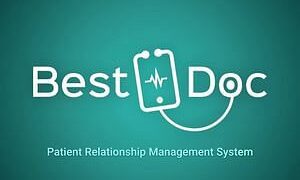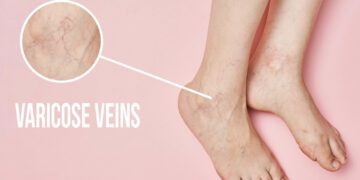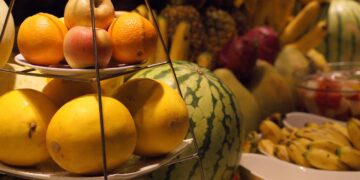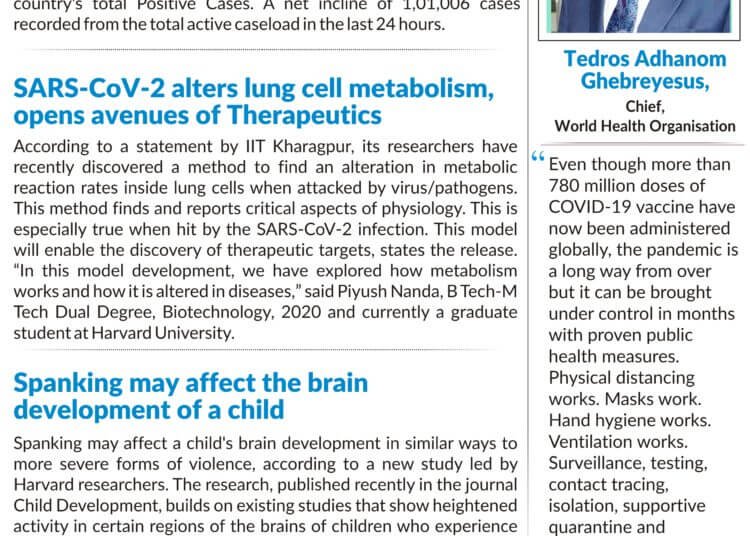Rx – Recipere

“Even though more than 780 million doses of COVID-19 vaccine have now been administered globally, the pandemic is a long way from over but it can be brought under control in months with proven public health measures. Physical distancing works. Masks work. Hand hygiene works. Ventilation works. Surveillance, testing, contact tracing, isolation, supportive quarantine and compassionate care they all work to stop infections and save lives.”
Tedros Adhanom Ghebreyesus, Chief, WHO
India’s daily new cases rise to 1,84,372
India’s daily new cases continue to rise as 1,84,372new cases were registered in the last 24 hours. The ten states including Maharashtra, Uttar Pradesh, Chhattisgarh, Delhi, Madhya Pradesh, Karnataka, Kerala, Tamil Nadu, Gujarat and Rajasthan have shown a rise in the COVID daily new cases. About 82.04% of the new cases are reported from these 10 states. Maharashtra has reported the highest daily new cases at 60,212. It is followed by Uttar Pradesh with 17,963 while Chhattisgarh reported 15,121 new cases. India’s total Active Caseload has reached 13,65,704. It now comprises 9.84% of the country’s total Positive Cases. A net incline of 1,01,006 cases recorded from the total active caseload in the last 24 hours.
SARS-CoV-2 alters lung cell metabolism, opens avenues of Therapeutics
According to a statement by IIT Kharagpur, its researchers have recently discovered a method to find an alteration in metabolic reaction rates inside lung cells when attacked by virus/pathogens. This method finds and reports critical aspects of physiology. This is especially true when hit by the SARS-CoV-2 infection. This model will enable the discovery of therapeutic targets, states the release. “In this model development, we have explored how metabolism works and how it is altered in diseases,” said Piyush Nanda, B Tech-M Tech Dual Degree, Biotechnology, 2020 and currently a graduate student at Harvard University.
Spanking may affect the brain development of a child
Spanking may affect a child’s brain development in similar ways to more severe forms of violence, according to a new study led by Harvard researchers. The research, published recently in the journal Child Development, builds on existing studies that show heightened activity in certain regions of the brains of children who experience abuse in response to threat cues. According to the study’s authors, corporal punishment has been linked to the development of mental health issues, anxiety, depression, behavioural problems, and substance use disorders.
Gene therapy shows promise in treating rare eye disease in mice
A gene therapy protects eye cells in mice with a rare disorder that causes vision loss, especially when used in combination with other gene therapies, shows a study published today in eLife. The findings suggest that this therapy, whether used alone or in combination with other gene therapies that boost eye health, may offer a new approach to preserving vision in people with retinitis pigmentosa or other conditions that cause vision loss.
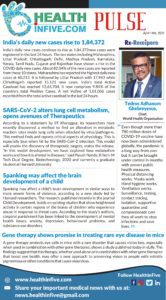
Follow Health In Five on LinkedIn, Facebook, Twitter & Instagram
Subscribe on WhatsApp & Telegram to receive real time updates






